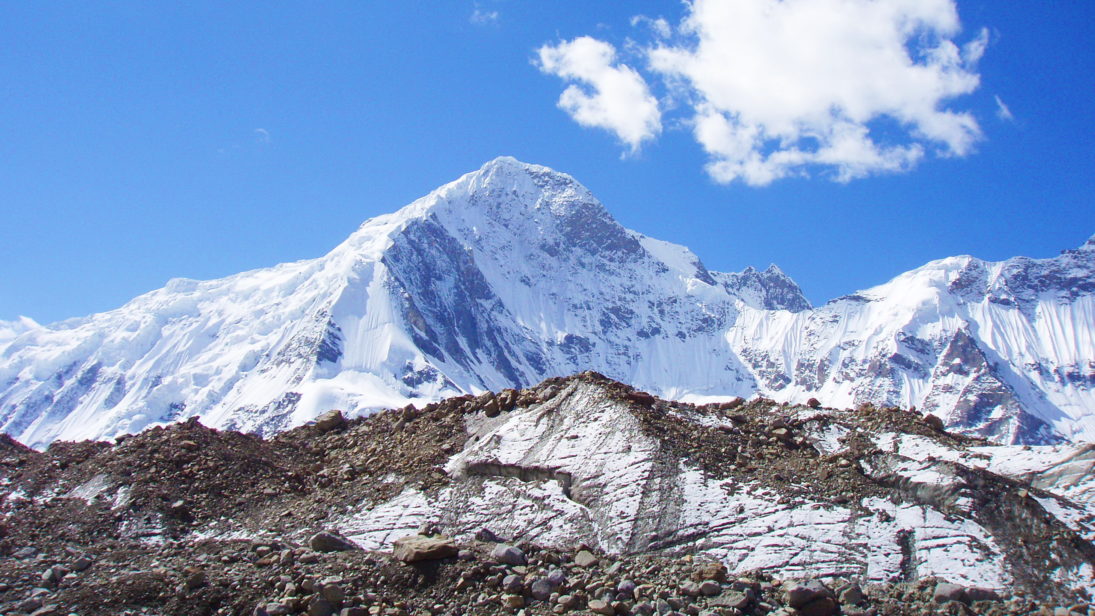
The people of Kashmir are on the streets once again, protesting against Indian rule following the killing of Hizbul Mujahideen commander Burhan Wani. The Indian government has used heavy force, including firing pellet guns, to disperse charged demonstrations. Since then, about 90 people have been killed and thousands of others have been injured. The resolve shown by the people of Kashmir and the Indian government’s heavy-handed response imply that the situation will remain tense. Pakistan is keen to capitalize on this situation in order to seek the support of the international community for its position on Kashmir. Pakistan considers Kashmir disputed territory, and demands that a plebiscite should be held in all parts of Kashmir to let the Kashmiri people decide about their future. However, Pakistan’s policy on Kashmir in the past has been counterproductive, and it needs to craft a more effective policy for the future.
Decades of military rule and a weak democratic system in Pakistan have meant that the military has dominated matters of foreign policy and national security. Keeping the Kashmir issue alive at international fora has been a core foreign policy objective of Pakistan, and the military leadership has played an important, self-assigned role in this regard. During the early 1990s, Pakistan mainly relied on militancy as a means to execute its Kashmir policy. Pakistan’s security establishment supported the Kashmir uprising by providing weapons, training, and financial support as well as a recruiting ground from mainland Pakistan. State media was used to highlight Indian brutality and glorify the actions of those fighting in India. Religious groups were allowed to recruit students and collect donations for the armed struggle in Kashmir. The issue of Kashmir was given priority over all other outstanding bilateral issues between India and Pakistan. The Pakistani leadership has also highlighted the Kashmir issue as a potential threat to the breakdown of nuclear deterrence between India and Pakistan after the nuclearization of South Asia.
Pakistan’s Kashmir policy has not only harmed the credibility of legitimate protests against Indian rule in Kashmir but has also proved costly for itself. Pakistan’s obsession with Kashmir has hindered the possibility of normalization of relations with India, which is key to Pakistan’s economic development. Moreover, the exploitation of public sentiments over the years through the use of media and textbooks has raised the political stakes for leaders on both sides to show any restraint on the issue. On the other hand, cross-border militancy has provided India an excuse to label the movement for Kashmiri freedom as foreign-sponsored cross-border terrorism and has helped the Indian government garner internal support for suppressing the Kashmir movement.
Way Forward
Pakistan and India are once again on the brink of military conflict, with visible chances of escalation after the Uri attack. Prime Minister Narendra Modi is under huge domestic pressure to live up to his image and take decisive action against Pakistan, and his response to the attacks has been seen as very effective so far. The Indian government has successfully convinced its domestic audience that it has conducted surgical strikes across the Line of Control (LoC) and killed several terrorists. The Indian government has also hinted at ending the Indus Waters Treaty between India and Pakistan, which has already survived several wars between the two countries. In an attempt to further mount diplomatic pressure, India announced it would boycott the upcoming SAARC summit in Islamabad. It also successfully won the support of Afghanistan, Bangladesh, Sri Lanka, and Bhutan to boycott the summit, which resulted in Pakistan postponing it.
The current situation explains why militancy is not a viable option for Pakistan to achieve its objectives in Kashmir and how the presence of anti-India militant groups in Pakistan is damaging its international standing. The issue of terrorism has overshadowed the suffering of the Kashmiri people and has enabled the Indian government to garner sympathy for its position at international fora. The Indian claim of surgical strikes without any fear of a diplomatic backlash from the international community, its threats to end the historic Indus Waters Treaty, and its success in winning the support of other regional states further portray the gloomy picture of Pakistan’s diplomatic standing. These developments imply that the international community largely blames Pakistan for the presence of anti-India militant groups within its borders and their involvement in attacks against India.
In the midst of this diplomatic crisis for Pakistan, there is little doubt that it has no option but to bring drastic changes to its Kashmir policy. In the short term, Pakistan should condemn the Uri attack and make sincere efforts to cooperate with India to identify the culprits. In the medium to long term, Pakistan has to take concrete steps to ban the activities of all groups involved in cross-border terrorism. Moreover, Pakistan’s civilian leadership needs to take charge of its foreign policy with the clear objective of normalizing relations with India. Pakistan should extend its moral and political support to the Kashmiri people for their independence movement but must firmly discourage militancy.
***
Image: Black Zero, Flickr


